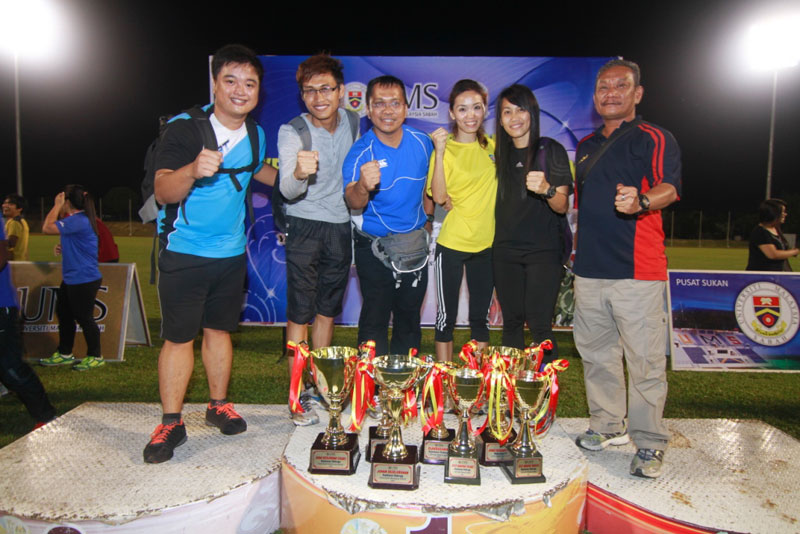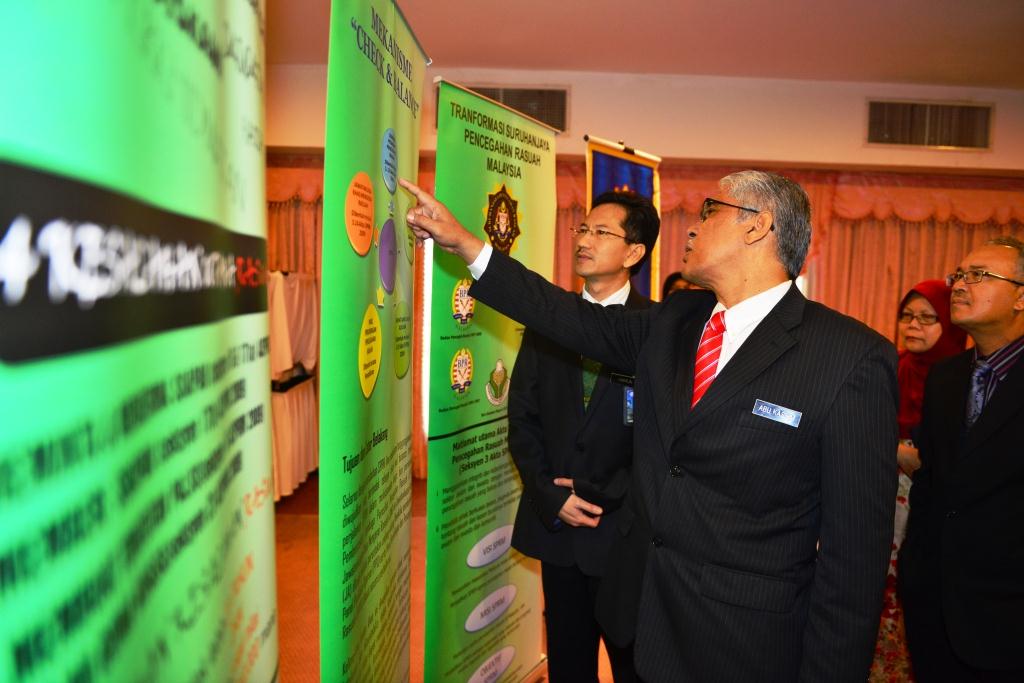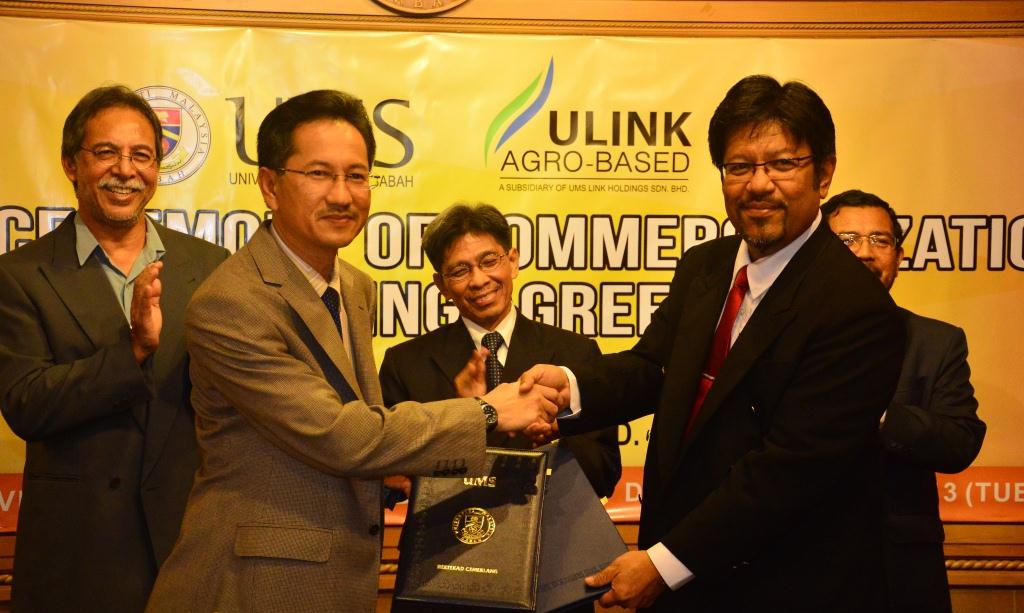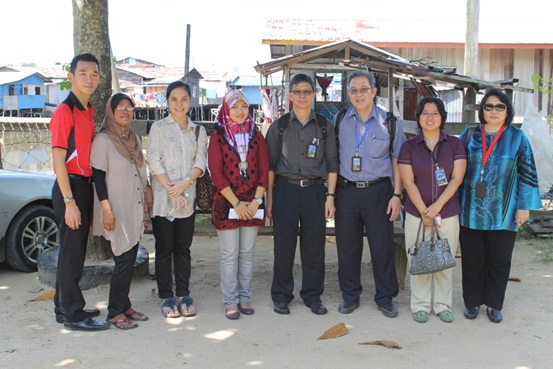TUESDAY, FEBRUARY 26 - UMS has been given the honour to conduct an evaluation on behalf of The United Nations Children's Fund (UNICEF) Malaysia on the ‘Reaching the Unreached: An Alternative Education Programme for Refugees, Undocumented and Stateless Children in Kampung Numbak, Kota Kinabalu, Sabah’.
Competing nationally for this prestigious honour, the UMS team led by Prof Vincent Pang, outbidded the other rival universities with its winning proposal. The other key members of the UMS team include Dr Lee Kean Wah, Madam Ng Shi Ing, and Ms Crispina Gregory K Han, from the School of Education and Social Development. Besides these core members, the UMS team is also ably supported by other associate members and students from the School of Education and Social Development (SPPS), and the Centre for the Promotion of Knowledge and Language Learning (PPIB). The fund allocated for this research amounted to RM88,000. The evaluation project is scheduled to be completed by May 2013.
The education center in Kg. Numbak , Kota Kinabalu, Sabah is a first initiative by UNICEF in collaboration with Ministry of Education, and the Sabah Special Task Force to provide access to basic education for out-of-school children in line with the principles of ensuring education for all children irrespective of religion, race, location, or citizenship status. The Numbak Educare Centre was established in 2011 in response to the needs of United Nation’s Article 28 (1)(a) Conventions on the Rights of the Child.
Since its inception, the Centre has been responsible for pioneering the implementation of an Alternative Education Programme (AEP) for the stateless and undocumented children. As the principal financier backer, UNICEF was interested to find out the extent of the impact of the AEP on this particular community. The evaluation was thus commissioned to meet the objectives of providing knowledge about the experience, lessons learnt and outcomes from the conception of the project up to the present time that UNICEF, MoE, Sabah Special Task Force and other education stakeholders can use as evidence for advocacy work and in the design of the Alternative Education Policy.
To evaluate the programme, the UMS team employs aparticipatory evaluation (PE) methodology based on a mixture of quantitative and qualitative, primary and secondary information sources. The participatory approach research method is appropriate because it takes into consideration the focal shift of Social Sciences research from the exclusive use of experimental designs to demonstrate the effectiveness of specific interventions and to foster their adoption in other settings (Patton, 1986). The evaluation process is scheduled to take place for six months. The evaluation is divided into two stages and includes both formative and summative evaluation and involving both qualitative and quantitative methods.
The first stage includes reviewing and analysis of existing government policy on Alternative Education and the programme documents and social visit to the community of implementation. During this stage, stated objectives, intended outcomes, and criteria for this programme as well as the norms and standards of the United Nations Evaluation group will be referred to develop evaluation instruments. The categories of evaluation will revolve around five key criteria, namely relevance, effectiveness, efficiency, outcome, and sustainability of the programme particularly from the perspective of gender and human rights.
The second stage looks at data collection through implementation of the evaluation instruments to the community of implementation. During this stage, the research team will enter the community of implementation daily to record and document data and facilitate reflection and feedback on the decided criteria. Besides that, planned interviews will be carried out with stakeholders involved in this programme.
The evaluation instruments will be visual reflections by the school children, focus group dialogue with the community, semi-structured interviews with government officials, community leaders, NGO representative, development partners, teachers, parents and school children; andcase studies of selected children’s life success stories.
The UMS team hopes to gather relevant information to document the AEP implementation process, its advantages, drawbacks and effects, through document analysis, interviews with participating stakeholders and participant observations.Findings from the evaluation report will be used by UNICEF Malaysia as evidence for advocacy work and propagating the Alternative Education policy to further improve the education provision for different groups of marginalized children in Malaysia.
Source: School of Education and Social Development and Centre for the Promotion of Knowledge and Language Learning
 Tuesday, 2 April – The School of Education and Social Development (SPPS) took the champion trophy at the recent 15th UMS Education Schools Athletics Championship. They collected 24 gold, nine silver and five bronze thus becoming the overall champion for three consecutive years. This achievement showed an increase in the medals tally compared to last year’s which was 21 gold, 14 silver and seven bronze.
Tuesday, 2 April – The School of Education and Social Development (SPPS) took the champion trophy at the recent 15th UMS Education Schools Athletics Championship. They collected 24 gold, nine silver and five bronze thus becoming the overall champion for three consecutive years. This achievement showed an increase in the medals tally compared to last year’s which was 21 gold, 14 silver and seven bronze.





